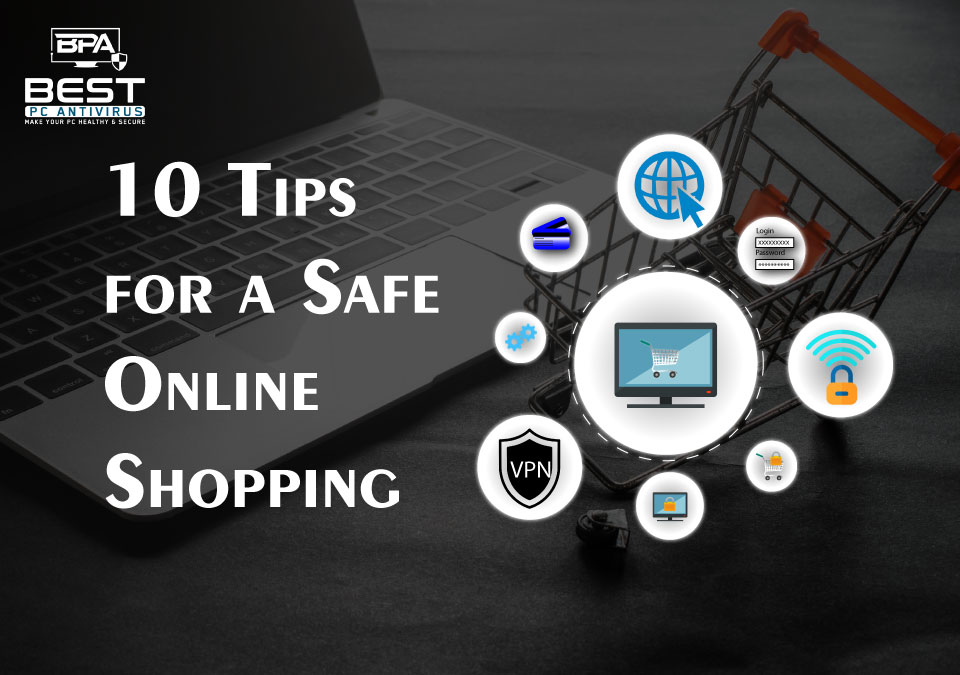Online shopping is convenient because you can compare prices and have your packages delivered right to your door without ever leaving the comfort of your own home. However, getting a great deal online entails more than just finding the lowest price. You’ll want to make sure that products arrive on time, that the quality is what you expected, that items come with a proper warranty, and that there is a way for you to return products or get support if you have any questions or issues. Use these suggestions to make your shopping experience more secure.
How to Safely Online Shopping
-
Always make purchases over a secure connection.
Your financial information and passwords are at risk of being stolen if your computer is not protected from potentially malicious software (and everything else you store on your computer or do online). This is such a simple concept, but only a small percentage of the US population adequately protects their computers. Use a secure connection and turn on your computer’s firewall.
If you shop online while connected to a wireless network, your information must be encrypted so that someone lurking outside the house cannot access it. When using a public network, avoid making any financial transactions because you don’t know if it has been compromised.
-
Learn about the merchant and their reputation.
If you are familiar with the store, you can shop their online store with confidence. If there is a problem, you can always walk into the local store for assistance, and if you know others who have had consistently positive experiences with the online store, you can be confident in the site’s quality.
If you don’t know the store, it might still be your best bet; just take a few extra precautions. Conduct your own background check by visiting websites dedicated to e-commerce reviews. Don’t order from a store that hasn’t been reviewed or hasn’t received positive feedback.
-
Avoid offers that appear “too good to be true.”
Any e-store that promises too much for too little is suspect. If the price is too low, think about whether the merchant obtained the items legally, whether you will ever receive the items you paid for, whether the items are the brand shown or a cheap substitute, if the item will work, if you will be able to return damaged goods – or if the merchant is making extra money by selling your financial information.
In a classic “bait and switch” scam, disreputable online stores, like their brick and mortar counterparts, may run an absurdly low price offer and then claim the item is out of stock in order to sell you something else.
-
Before purchasing a Gift Card, read the Terms & Conditions.
If the gift card is for someone else, make sure the store is legitimate, the person uses the store, and there are no additional requirements.
-
Avoid using an e-store that requires more information than is necessary to complete the transaction.
Expect to provide a payment method, a shipping address, a phone number, and an email address, but if the merchant requests additional information, walk away. You should never give them your bank account number, social security number, or driver’s license number. Some companies will ask you questions about your interests, but these should always be optional, and you should be cautious about answering them. Is the merchant selling, renting, or sharing your information?
Check the site’s privacy policies to see how vulnerable your information may become. Many stores explicitly state that they do not share, sell, or rent consumer information; others claim that they own your information and can use (or abuse) it however they see fit. Stick with companies that value your privacy.
-
Do you need to make a password for the site? Make it unique.
When you make a purchase, you will frequently be asked to create an account with a password. You can usually choose not to do this, and unless you intend to use the e-store frequently, avoid creating an account. If you do want an account, make sure it is unique and strong.
-
Is the website safe?
Before entering any personal or credit card information on a shopping site, check to see if the web address begins with “https:” rather than “http:” That small’s’ indicates that the website is secure and encrypted to protect your personal information.
-
Pay with a credit card or PayPal
Do not use a debit card or a check because they do not have the same security safeguards in place to protect you in the event of a problem.
If your financial information is stolen and the money in your bank account is untouched, credit card purchases limit your liability to no more than $50 in unauthorized charges. Most debit cards do not provide this protection, and even if they do, you are the one who is out of money in the meantime.
Consider designating one credit card solely for online purchases and transactions. If the card is compromised, you can quickly disable it without affecting other types of transactions.
-
Always double-check the company’s shipping policies.
Some merchants charge exorbitant shipping fees, which can turn a good deal into a costly mistake. Look into whether they offer tracking and insurance. Learn about the carriers they use, and be especially cautious if the item will not be shipped within 10 days.
-
Make use of a reputable internet security program.
Using an effective internet security product is still the best way to stay safe online. Shopping is no different. Instead, as the volume of goods and data exchanged online grows, security features such as real-time anti-phishing and identity theft protection are more important than ever.
Let continue our online shopping…
Read More : How to Watch Porn Safely? 7 Tips to Keep Your Secrets Safe
8 Tips for Protecting Yourself Against Online Identity Theft




